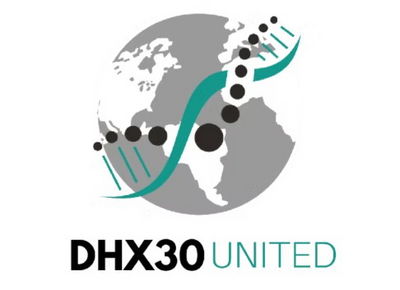DHX30-associated neurodevelopmental disorders
RNA helicases are responsible for the remodeling of RNA secondary structures and RNP particles. Using a trio whole-exome sequencing approach, we, in close collaboration with the group of Prof. Hans-Jürgen Kreienkamp, identified pathogenic variants in DHX30 as a new monogenic cause of a neurodevelopmental disorder. Our initial functional investigations showed that the causative variants lead to deficits in either RNA binding or ATP hydrolysis. At the cellular level, this triggered the formation of stress granules and reduced protein synthesis. However, the functional significance of DHX30 in cellular RNA metabolism and the molecular mechanism of this novel disease remain unclear.
The main goal of this project, utilizing patient-derived iPSC´s and mouse models, is to determine the mechanism of DHX30-associated neurodevelopment delays, to shed more light on the role of translation in neuronal development, and to ultimately identify targeted treatment options for this disorder.
Furthermore, during the recent years we have established a close relationship with families of the affected individuals:
Facebook-based family support group
Media:
Devastating Diagnosis: Children with rare mutation meet for first time in Fort Lauderdale
Families of children with one of the rarest genetic disorders in the world meet in Colorado Springs
Medical conference held in Colorado Springs to discuss rare DHX30 gene mutation

